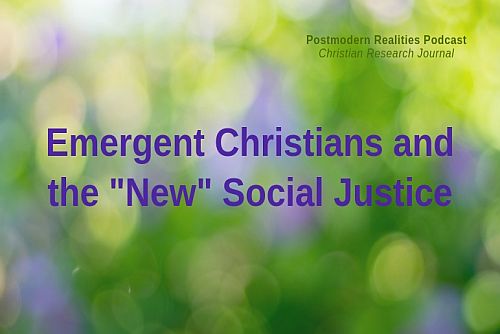Christians’ concerns for social justice have a rich history, rooted in the Lord’s commands and compassion revealed in Scripture. Biblically, justice is grounded ultimately in God’s character, who is just and calls us to be just because we are made in His image. Thus, the standard for justice is universal – it is God’s communicable attribute, which is immaterial.
While Christians agree that people should be just, much depends on how we answer two major questions. First, what kind of things are justice and dignity, and even humans? Christians have offered many different views about the nature of morals; yet, not every interpretive framework will preserve these biblical positions and these core morals.
Second, how do we know these things? The biblical authors seem to presuppose that we simply can know some things directly, such as that racism is unjust, even though we are finite and fallen. Yet, this presupposition has been denied by many today, both non-Christians and Christians. However, that means we cannot access God’s intended meaning itself in a given passage of Scripture; we simply work with our interpretations.
Today, many, including some Christians, are advocating a “new” form of social justice, new in the sense that is grounded not in the universal, shared standard of God’s character and His Word but on different bases formed on answers to these questions. The question will be, Can these new bases for social justice preserve justice, human dignity, and equality? Or will they undermine them? I will identify some of the key Christians (such as Brian McLaren) who are embracing these “new” bases for social justice. Then, I will assess briefly these bases. I will show that moral qualities such as justice cannot be sustained on them. Finally, I will extend these findings for an implication to the gospel itself.
This Postmodern Realities episode is a conversation with Journal author R. Scott Smith about his online exclusive feature article “ Emergent Christians and the ‘New’Social Justice.”
We’d also like to invite you to subscribe to the Journal. To subscribe to the Journal, please click here.
When you to subscribe to the Journal, you join the team of print subscribers whose paid subscriptions help provide the resources at equip.org that minister to people worldwide. These resources include our free online-exclusive articles, such as this review, as well as our free Postmodern Realities podcast.
Another way you can support keeping our resources free is by leaving us a tip. A tip is just a small amount, like $3 or $5, which is the cost for some of a latte, lunch out, or coffee drink. To leave a tip, click here.
Other articles and Postmodern Realities podcasts featuring this author:
God and Relationships on the “New Kind” of Christianity
Emergents and the Rejection of Body-Soul Dualism
